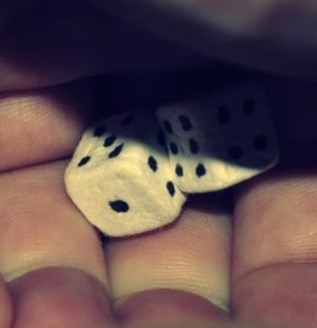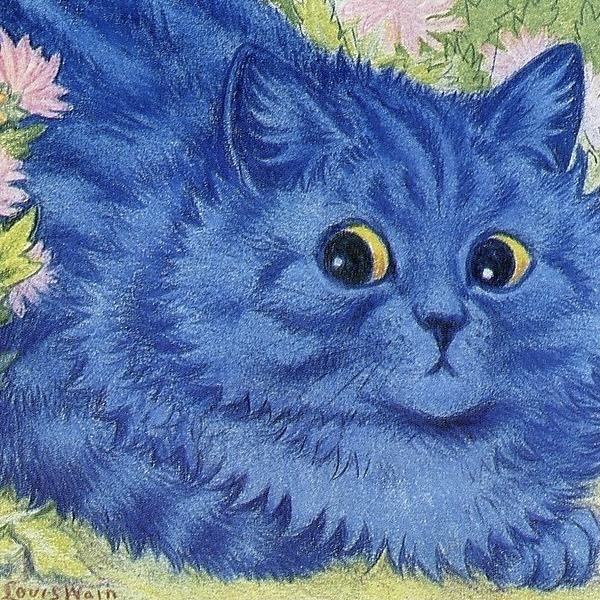Rant spoiler-ed below, because its mostly just complaining, but it feels like a lot of games lately have added 'gamified xp' to their systems, and I don't understand the appeal at all. The most positive any player I've talked to has felt about the systems are 'meh, I could take it or leave it', with most slightly disliking them.
So, mostly, I'm looking for people that like these kinds of mechanics (I have to assume they're out there if so many games feel like they're adding them), and what you is it you like about them.
But I feel like Milestone XP just makes the most sense for any traditional coop party RPG.
rant
I like trying out a bunch of different systems, and there's a lot to like, especially with a lot of the smaller games out there. I do like there 'narrative' approach ttrpgs feel like they've been taking recently, but between Chronicles of Darkness, ICON, Forged in the Dark, Apocalypse world, etc., and all there spinoff systems all having XP be earned for specific actions in game, its just a pain in the ass, that takes me out of the action.
I mostly GM, but I strongly prefer milestone XP. For some of the above games, its easy enough to gut their bespoke XP systems out of it, and just have players advance over time, but in several of them, it fucks with the overall balance, since several actions are 'bad', but made worthwhile because they earn XP.
But I don't like the feeling of interrupting game to award point, and adjudicate character advancement. And I hate systems that have players advance unevenly. There's always going to be a certain degree on uneven-ness in player attention, of rules mastery, and of spotlighting. As GM, its important to manage those so that everyone gets a chance to shine. But it just feels like increasing that workload for the GM, to need to additionally pay attention to the XP, and try to drag or XP share the players that don't find those systems engaging to not mechanically fall behind.
And as a player, I tend to have higher system mastery and attention than the others I play with, and tbh it feels bad to end up with more XP because of that. But also, it feels bad to knowingly pass up free XP by purposefully not engaging with those systems.
Really, only Call of Cthulhu and Paranoia feel like their gamified XP fits, and that's largely because the games are supposed to feel hopeless and unfair, and in the case of Paranoia, gamified and playing favorites.
I like gamified XP a lot since it encourages players to player their characters to play in more interesting fashions than just in an optimal fashion. I think Blades in the Dark does it pretty well, with a variety of rewards. Rewards for taking desperate actions encourages the themes of a high risk, cutthroat setting. You get rewards for doing what your character is good at, so to encourage spotlight moments for each character. You also get rewards for role-playing and rewards for indulging in vice, emphasizing the game's themes. The per session XP cap is low enough that party advancement really can't become that unbalanced. XP handouts also help highlight how well spotlight management is working, and can help GMs notice that certainly players may not be getting their fair share. Session recaps to hand out XP are also a good tool for players to share moments and give feedback.
Milestone XP is fine, but it's also kinda boring and prescribes a type of game where the GM is the sole adjudicator of forward motion. Allowing players to set their own goals to earn XP and advance kinda helps things progress in an organic fashion, which is good for more sandboxy games.
Thanks for the explanation.
I've been enjoying FitD a lot, with the sole exception of XP. I feel like its adds to my work load, and ends up feeling bad for players that do fall behind. I agree that it is a mostly-negligible amount, in terms of 'power loss', but in my experience, players falling behind in XP makes them lose interest in the game, rather than driving them to engage further. Maybe that's just my players not being competitive; I could see a group where that competitive drive would lead them to engage more.
But I ran our game RAW to start (since, as much as I kinda felt I wouldn't enjoy the XP, I think its worth giving systems an honest try RAW before homebrewing things that you don't like), and it definitely felt like the two players that got behind on XP just mostly disengaged, since it gave them a 'what's the point?' feeling, and swapping to milestone reengaged them.
I do like the 'indulging in moments of vice' as a gameplay consideration, but I think it narratively works better as a way to relieve stress, something I more-or-less copped from World of Darkness.
First of all, assigning XP is not the GM's job in Blades in the Dark. RAW, it's the players job to assign XP to themselves, and the GM only needs to adjudicate if players are being weasels. The question to ask is why the players fell behind in XP? Was it because they weren't engaged with the game to do the things that would earn XP? Is it because other players hogged the spotlight? The XP is setup that if you engage with the game's premise and themes, that XP will flow pretty naturally.
I thought, for the desperate action thing, that that's the GM's decision?
And, at end of game review, there's that 'group discussion' of 'did I do these things?' which, I feel like is just a reward for playing your character? Maybe I just don't 'get it' but playing your character is what you do, and it felt perfunctory to go through and ask every player: did you do your thing? When it felt like they are RP'd fine anyway. Just felt very arbitrary.
So, the XP difference is mostly, who got more desperate actions taken, which feels weird.
Yes, whether an action is desperate or not is ultimately the GM's decision, but players can always trade position for effect to make actions desperate if they like. Desperate action XP is also more limited, since it only applies to the stat pool that was used for the desperate action, while end of session XP can be assigned to any stat pool or to new character options. There's an obvious trade-off, since taking more risk means taking more harm and stress, reducing the lifespan of the character. So, if you do burn out a character that way you get rewarded mechanically for "burning bright and fast."
As for the end of session review, I personally like the opportunity to reflect a bit on the session, both as a player and a GM. Again, this should be led by your players, and not by the GM. Ask your players how many XP they earned, not whether boxes were checked off, that's their responsibility to track. I think the problem here is taking on a specific player task as a GM, which does undermine the system.
I play a lot of OSR, and even in those games I prefer milestone. It just feels so much better - as a GM, I know exactly when the party will level up and I can prep encounters accordingly, as a player getting a level up after finishing a storyline or something feels really nice (even better than splitting treasure IMO). That said I don't mind if player advancement is a bit uneven, especially if that unevenness is one of the ways classes are balanced against each other, so in my games I usually give out XP in lumps of a thousand or so every time the party finishes doing something.
Even in the computer world, games like BG3 would benefit from a milestone system. I remember getting to the end of Act 1 still at level 3 and getting trounced the moment I tried to move on, necessitating me going back and grinding XP by killing every hostile unit on the first map for no reason whatsoever, making me wonder why I had bothered using stealth and diplomacy to avoid fights in the first place. It gave me flashbacks of playing Ultima 2 and grinding XP by going to a specific town where all of the townsfolk gave 40 XP a pop, killing everyone, and then leaving and returning so that they would respawn.
Yeah, if you're using XP in DnD (or similar), it really needs the DM to award full encounter XP for encounters if the PC's smartly sneak/talk their way through, as well as award XP for purely social encounters (provided there is some kind of challenge/goal involved). Otherwise, if feels like the game just wants you to kill, as you note with BG3.
And yeah, I'm not the most attached to 'equal levels'; some of my favorite games are White Wolf and its like, where there's no levels at all, just freeform spend XP on whatever. But however character advancement is, I strongly prefer players to be in lockstep with one another.
As both a DM and player I get very different experiences from gamified and milestone XP, and they both have their place in different settings.
Milestone, for starters, is much easier to deal with. No tracking, no checking everyone's getting equal opportunities, no throwing in filler to knock the XP bar up a bit. It lets you keep to the important story stuff, concentrating on the main narrative, and ensure an appropriate power level as you progress.
Gamified XP on the other hand, when properly implemented, encourages exploration and interaction in a less story-bound structure. There's an active incentive to look for side stories and random issues to resolve instead of heading directly for the objective.
To use 2 pathfinder adventures as examples, I used milestone for Rise of the Runelords and am using gamified for Abomination Vaults.
RotR is a classic fantasy adventure to defeat a returning evil, that takes players from a small village to a large city then out into the mountains following the plot threads. It's a very linear adventure, with some side activities during periods of downtime, but mainly concentrating on progressing through the country and story to find the BBEG's lair. I started using the regular xp system and then switched to milestone after I realised the players were about a level and a half behind where the AP wanted them, and would get stomped by the next boss fight. Milestone worked much better, and let me cut boring bits and expand others without worrying about the XP cost. AV is instead based around a mega dungeon and the town above it, with lots of side stories that link the contents of the dungeon to the town above it, if you spend time actually interacting with the town instead of using it as a place to rest and restock. Even I, with my love of tactical combat games, would get bored if that's all it was, so gamifying the XP encourages the players to spend their time outside of the dungeon roleplaying with the town itself. It also gives me opportunities to share the story(/stories) of the dungeon in a way that makes sense, instead of forcing lore dumps in between combats. It also frees the players from the need to explore every inch of the dungeon looking for fights, as they can easily make up XP through roleplaying.Choosing which to use is a matter of matching them to the way you're telling the story and how you want the players to interact with the world, rather than one being better than the other, just like with choosing what system to use.
Okay, I get that.
I still feel like my preference is for roleplay to reward in-universe rewards, and character advancement to be milestone. For a similar example, with my running Strength of Thousands PF2e game, I added in extra opportunities to have the different NPCs help the PC, in a way outside the fairly gamified rewards pre-written into the book. But, to a certain extent, that is more work than just dumping XP on them.
I do dislike the PF2e AP as-written, 'give extra XP for fully digging into conversations' thing that crops up in some social encounters, as that's another thing where, like, that info is useful in and of itself. I don't think players need rewarded for getting information that is of material use to them. But, I've been doing it milestone anyway, so its a moot point for me on that front.
I like the way the gamified XP in Flying Circus works. It's a game where the players are all old-timey fighter pilots in like an alternate fantasy world. You earn XP by removing stress from your character, and the gameplay loops is that you basically go up into the air to risk your life (which is a very stressful endeavour for your characters), and then you land and go drink and do drugs about it. I still haven't played enough to have a super good opinion on how good it is but I think it does a good job of making optimal play also the most narratively interesting play, which is IMO a good way to do things.
I think skills are more interesting when they're a different kind of item, and finding something powerful you can't use yet is a very compelling way of encouraging players to create a new "build" or whatever
That's a fair take, and I can agree with that.
Though tbh, my preference is there to kind of be kind of two kinds of items.
-
'expected' items. Not every system needs this, but I think two solid examples are PF2e, and World of Darkness. In PF2e, there's solid guides on expected gold per level, and when players should have access to what tier of item, and how much they should have. Whereas in WoD, (magic) items are buyable with XP, so they're as much a part of your build as any other stat or power you buy, but with the extra interaction of: its an item. It can be passed around the party, or stolen if you're careless. In both cases, these magic items are really just additional branches of character progression that need little GM adjudication.
-
Plot items. These are things GM can award, or the party can work toward, and my preference for plot items is for them to be weird and outside character progression. Maybe can be represented by some kind of boon or bonus, but largely, I like to have them really be 'plot level' powers and not just like, stat or spell modifiers.
If some class or character is weak or unfun, I'd rather fix it through homebrew, than to just shower that player with 'extra' unique loot.
"expected accomplishments" yes that's a big issue and a source of gameplay story divergence where a character off doing important tasks is less powerful and prepared than everyone else
-
Depends on the gamification tbh. In my dungeon-crawly games, I gave PCs XP for bringing loot back to town, killing things, and roleplaying according to their traits. All of this except RP are evenly distributed, but RP XP are capped at one instance per session, typically easy to do, and push action forward. Stuff like "my Curious character goes and pulls that suspicious lever because it gets me XP".
In my current cyberpunk game I'm just giving them flat XP per successful mission with a bonus +1 to a player-elected MVP.
Honestly the biggest issue with uneven advancement in my games is that some players just won't spend points or buy things. Our big gun shootman and our getaway driver still have their (absolute fucking garbage) starting pistols because they just don't ever think of getting a new one even though it's easily affordable and they've gone shopping for other stuff before.
the systems i gm the most use milestone advancement by default
i prefer it from both the gm and roleplaying perspective
after they complete the quest/finish the mission/pull off the heist etc. they get an advancement, which handily coincides with some downtime where the character can do a training montage or whatever
those systems also have other rewards to give players for interesting play though
i find that milestone works equally well for sandbox play, where the gm can give an advancement if they/the player(s) judge the session warranted oneI do like me a Ubisoft game where you turn on lizard brain and collect so that number go up. But I hate the battle pass system that the new Halo has and how annoying micro transactions are. It's bad enough I have to pay for cat ears, but they won't even sell them too me unless I'm lucky enough to log in at the right time because the shop doesn't just show you everything.






